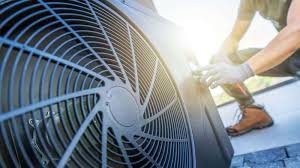Your air conditioner works hard all summer long. But if you’re not giving it the care it needs, it might not be ready when you need it most. Smart homeowners know that scheduling an AC tune-up every year isn’t just about staying cool—it’s about saving money, avoiding stress, and keeping their system running better, longer.
In this article, we’ll explain why yearly tune-ups are so important, what they include, and what can go wrong if you skip them.
Why Yearly AC Tune-Ups Make Sense
Skipping Maintenance Leads to Bigger Problems Later
Many people think their air conditioner is “fine” just because it still turns on. But behind the scenes, it could be losing efficiency, wearing down, or even building up harmful dust and mold. By the time it stops working, the damage is already done—and the repair bill can be high.
A yearly AC tune-up catches these issues early, so they don’t become expensive breakdowns later.
Your AC Works Harder Than You Think
In the hottest months, your air conditioner runs for hours each day. That’s a lot of wear and tear. Over time, parts loosen, filters clog, and refrigerant levels drop. Without a tune-up, the system has to work harder to cool your home—which means higher energy bills and a shorter life span.
Regular tune-ups help your AC stay strong and run efficiently.
Tune-Ups Help You Save Money Every Month
When your AC is clean and calibrated, it uses less energy to do the same job. A well-maintained system can cut your energy bill by up to 15%, according to the U.S. Department of Energy. That adds up fast—especially during a long summer.
What’s Included in a Professional AC Tune-Up
Inspection of All Key Parts
A trained technician will check every major part of your system, including:
- Coils
- Compressor
- Fan blades
- Drain lines
- Electrical connections
They’ll look for signs of wear, corrosion, and anything that could cause failure later.
Filter Replacement and Coil Cleaning
Dirty air filters and clogged evaporator coils restrict airflow and make your system work harder. During a tune-up, these are cleaned or replaced, so your home stays cool without extra strain on your unit.
Thermostat and Control Testing
Your thermostat tells your AC when to turn on and off. If it’s off by even a few degrees, you’ll waste energy or feel uncomfortable. Technicians will test it, recalibrate it, and check if it’s communicating correctly with your system.
Refrigerant Level Check
Too little refrigerant means your AC can’t cool effectively. Too much can damage the compressor. A proper tune-up includes checking levels and topping off if needed, to keep your system balanced.
What Happens If You Skip AC Tune-Ups?
Risk of System Breakdowns
Without regular care, small issues go unnoticed. Over time, they grow into big problems. Worn parts can snap. Clogged lines can overflow. Motors can overheat. All of these can cause your AC to stop working on the hottest day of the year.
And emergency repairs? They’re not cheap.
Higher Energy Bills
Dusty filters, leaking refrigerant, and bad airflow make your system run longer—and harder. That means your power bills spike, even though your home doesn’t feel any cooler.
Shortened AC Lifespan
Most air conditioners last 10 to 15 years. But without maintenance, many fail much sooner. When one part fails, others get stressed. You may find yourself replacing the entire unit years before you should.
Poor Indoor Air Quality
Neglected AC systems can collect mold, bacteria, and dust. That air gets pushed into your home, making allergies worse and possibly spreading germs. Tune-ups help keep the air in your home clean and healthy.
Signs Your AC Is Begging for a Tune-Up
Warm Air or Weak Airflow
If your vents are blowing air that isn’t cool—or not much air at all—your system is struggling. A tune-up can fix this before it gets worse.
Strange Sounds or Smells
Rattling, buzzing, or grinding noises could mean loose parts or debris. Musty smells could mean mold inside the system. Don’t ignore these signs—they mean something is wrong.
Your AC Turns On and Off Frequently
If your system cycles on and off constantly, it’s working too hard. This could be caused by a dirty coil, thermostat issues, or low refrigerant. A tune-up gets everything running smoothly again.
When’s the Best Time to Book a Tune-Up?
Spring Is Ideal
The best time for an AC tune-up is in the spring—before the hot weather hits. That way, you catch any problems early, beat the summer rush, and make sure your system is ready when you need it.
But It’s Never Too Late
Even if it’s already hot outside, a tune-up is still worth it. It can still improve performance, lower your bills, and prevent a mid-season breakdown.
What to Expect From Your Tune-Up Appointment
Step 1: Full System Evaluation
Your technician will inspect all major components and look for any signs of wear, leaks, or damage.
Step 2: Clean and Calibrate
They’ll clean the coils, change the filters, check refrigerant levels, and test all moving parts.
Step 3: Report and Recommendations
You’ll get a full summary of what was done and if any repairs or improvements are suggested.
Conclusion: Be the Smart Homeowner—Tune Up Before It’s Too Late
Air conditioners aren’t just about comfort—they’re about cost, health, and safety. Smart homeowners know that scheduling a yearly AC tune-up keeps things running smoothly, prevents major breakdowns, and saves money on monthly bills.
Skipping maintenance might not seem like a big deal—until your home is hot, your system fails, and your repair bill is sky-high.
So don’t wait for trouble. Book your tune-up before the heat hits. Your home—and your wallet—will thank you.


